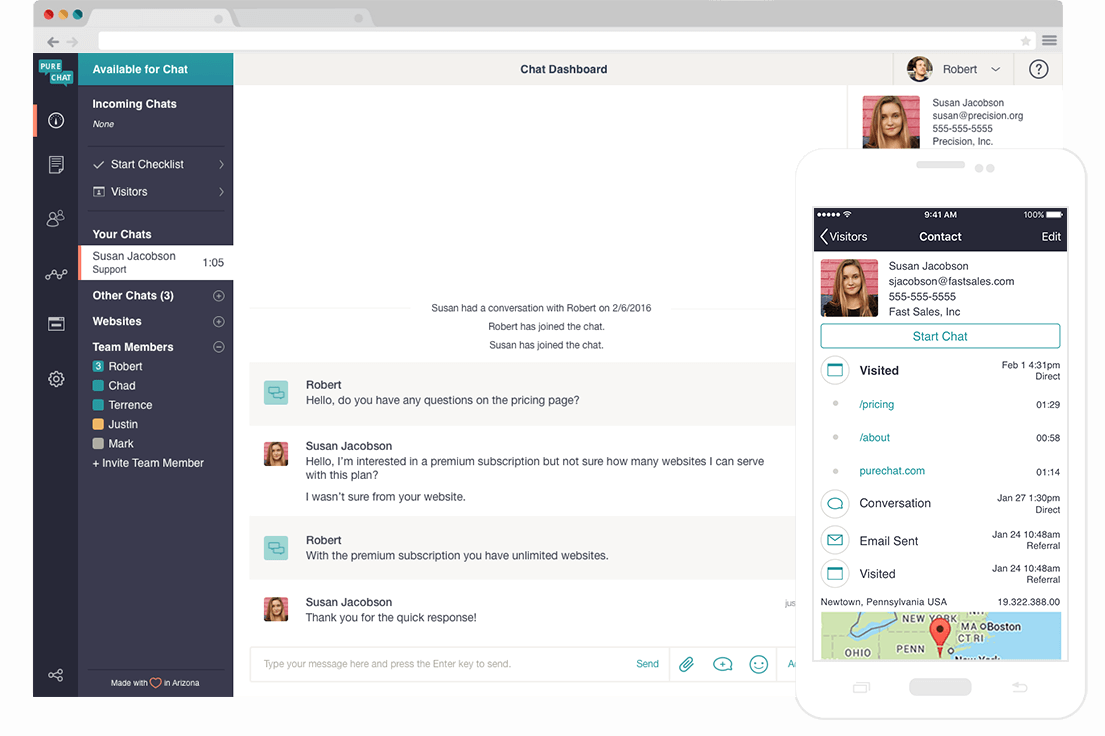Website chat functionality has become a cornerstone of online interaction, revolutionizing how businesses engage with their customers. At its core, website chat enables real-time communication between website visitors and businesses, facilitating instant support and information dissemination. This feature has grown in importance due to its ability to enhance user experience and boost customer satisfaction. By integrating chat options, websites can offer responsive customer service and address queries promptly, thereby improving overall customer retention and loyalty.
Benefits of Chatting with Websites
Instant Customer Support
One of the primary advantages of website chat is its capability to provide immediate customer support. Unlike traditional email or phone support, where customers may face delays, chat systems allow for instant interaction. Visitors can ask questions, seek assistance, or resolve issues in real-time, leading to quicker problem resolution and higher customer satisfaction rates. This immediacy not only strengthens the relationship between businesses and customers but also contributes to a positive brand image.
Enhanced User Experience
Website chat significantly enhances user experience by offering a seamless and convenient way for visitors to communicate. Instead of navigating through complex support pages or waiting in phone queues, users can simply initiate a chat session. This accessibility reduces frustration and increases engagement, as users are more likely to interact with a website that offers responsive and accessible support options. By prioritizing user experience through chat functionalities, businesses can differentiate themselves in competitive markets and retain more visitors on their websites.
Increased Conversion Rates
Implementing chat features on websites has been shown to positively impact conversion rates. By providing personalized assistance during the browsing or purchasing process, businesses can address customer concerns or objections in real-time. This proactive engagement not only builds trust but also encourages visitors to proceed with their transactions. Studies have indicated that websites offering live chat support experience higher conversion rates compared to those relying solely on passive communication channels. This tangible improvement in conversion metrics underscores the strategic importance of integrating chat functionalities as part of a comprehensive digital marketing strategy.
Types of Website Chat Systems
Live Chat
Live chat systems enable direct, real-time communication between website visitors and support agents or customer service representatives. This type of chat functionality allows for immediate responses to inquiries, issues, or sales-related questions. Live chat interfaces are typically embedded into websites, often appearing as pop-up boxes or discreet chat icons that visitors can click to initiate a conversation. Businesses can customize these interfaces to match their branding and operational needs, ensuring a seamless integration into the overall user experience.
Chatbots
Chatbots represent an automated approach to website chat, utilizing artificial intelligence (AI) to simulate conversations with users. These virtual assistants can handle a wide range of inquiries, from basic customer support queries to complex transactional interactions. Chatbots are designed to mimic human conversation patterns and can operate 24/7, providing consistent support without human intervention. By leveraging natural language processing and machine learning algorithms, chatbots can understand user intents and respond intelligently, improving efficiency and scalability for businesses. Moreover, they offer cost-effective solutions for handling routine inquiries, freeing up human agents to focus on more complex tasks.
Best Practices for Implementing Chat on Websites
Choosing the Right Chat System
When selecting a chat system for a chat with websites, businesses should consider factors such as their target audience, operational requirements, and technical capabilities. Whether opting for live chat or chatbots, it’s essential to choose a solution that aligns with the organization’s goals and customer service strategy. Assessing scalability, integration capabilities with existing systems, and vendor support are crucial steps in making an informed decision.
Designing User-Friendly Interfaces
The design of chat interfaces plays a pivotal role in optimizing user experience. Interfaces should be intuitive, visually appealing, and easy to navigate, ensuring seamless interaction between users and the chat system. Incorporating features like clear call-to-action buttons, typing indicators, and customizable greetings enhances usability and encourages engagement. Responsive design principles should also be applied to ensure compatibility across devices, providing a consistent experience regardless of the user’s platform or screen size.
Training Chat Operators or Programming Chatbots
For businesses employing live chat systems, training customer support agents or representatives is essential to maximize the effectiveness of chat interactions. Agents should be well-versed in product knowledge, troubleshooting techniques, and communication etiquette to deliver high-quality customer service. Similarly, programming chatbots requires meticulous planning and continuous refinement to ensure accurate responses and optimal user satisfaction. Regular updates and monitoring of chatbot performance are necessary to adapt to evolving customer needs and maintain relevance.
Examples of Successful Website Chat Implementations
Case studies and examples from various industries demonstrate the versatility and impact of website chat systems in enhancing customer engagement and operational efficiency. By highlighting successful implementations, businesses can gain insights into best practices and innovative approaches to leveraging chat technologies for competitive advantage.
Future Trends in Website Chat
AI Advancements in Chat Technology
The future of website chat systems lies in advancements in artificial intelligence (AI), particularly in the capabilities of chatbots. AI-driven chatbots are expected to become more sophisticated, capable of handling complex queries, understanding nuanced language, and offering personalized recommendations. Machine learning algorithms will enable chatbots to continuously learn from interactions, improving their ability to provide contextually relevant responses and anticipate user needs.
Integration with Voice Assistants
The integration of website chat with voice assistants represents a significant trend in enhancing user interaction and accessibility. Voice-enabled chatbots or virtual assistants can offer hands-free interactions, catering to users who prefer spoken commands over text-based communication. This integration expands the reach of website chat functionalities across different devices and modalities, further enhancing convenience and user engagement.
Conclusion:
Website chat systems play a pivotal role in modern digital communication strategies, offering benefits such as instant customer support, enhanced user experience, and increased conversion rates. By implementing best practices and embracing technological advancements, businesses can leverage chat functionalities to foster stronger customer relationships and achieve competitive differentiation in their respective markets. As AI continues to evolve and integration with voice assistants expands, the future of website chat promises even greater possibilities for improving user engagement and operational efficiency.








